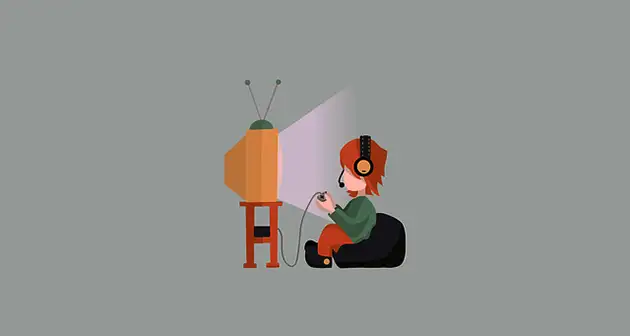Class Action Settlements FAQ
1. Who gets paid in a class action?
In a class action case, many plaintiffs who have been affected by the same accountable party file a consolidated lawsuit to seek damages for their injuries, losses, or psychological distress. Instead of doing it alone, they stand a higher chance of winning a lawsuit if they pool their resources. While the class' attorneys typically take a percentage, the court will restrict their payment to a reasonable amount.2. How do I start a new class action?
A class action case must follow specified procedures before it can be concluded. A personal injury is the starting point for a class action lawsuit. It is not required that something cause physical harm. You can also file a class action lawsuit if you have suffered financial loss. The representative is the individual who initiates a class action lawsuit. The representative talks on behalf of all those compensated if the action is successful, known as members. To begin a class action, a judge must grant authority. Then, the representative and the lawyer prepare a formal request for approval. If the judge finds all the prerequisites are complete, the class action will be allowed to proceed.3. How long do class actions take?
The length of time it takes for a class action lawsuit to be settled is influenced by several factors. First, each class action is different; some are settled in a matter of months, while others take years. Most class actions are completed in two to three years, but some may take even longer, especially if a court ruling is appealed. Furthermore, class action rulings can be appealed multiple times by the defendant!4. Can you make a lot of money from a class action settlement?
Depending on the lawsuit's outcome, the plaintiffs may be awarded cash compensation. Even if a class action lawsuit has a high number of plaintiffs, each individual is still entitled to damages. A class-action lawsuit settlement is usually not large, only a few dollars. Members of a class who participate in a class action lawsuit but do not have any injuries or evidence to support their claim may get less than $10.5. How is money divided in a class action lawsuit?
While the total award in a class-action case may be in the millions of dollars, as previously stated, the amount dispersed to the thousands of class members may be small. Money is split based on the terms of the settlement or verdict achieved by the plaintiffs following a class action lawsuit. Even if a class action complaint is settled before it goes to court, a judge must approve the settlement as fair and equal.6. Is a class action lawsuit worth it?
Even if your losses are minimal, joining a class action case may be worth your time, money, and resources. If you file a class action case, you have a better chance of getting a settlement. Minor injuries or other damages caused by a huge corporation's negligence might affect a significant number of people. A class action lawsuit may be able to assist you in recovering financial compensation for your losses. As a result, they could be eligible for tens of thousands of dollars in compensation.7. Who gets paid the most in class actions?
Money divided in a class action lawsuit settlement usually contains a provision for an award for the lead plaintiff. The amount of money a lead plaintiff receives from a class action settlement is mostly determined by the terms of the agreement, with the court's discretion playing a final role. When deciding on a monetary award for a lead plaintiff, the court will usually consider the extent to which the lead plaintiff was involved in the case, the type of the loss suffered by class members, and the size of the monetary compensation made available to the class.8. Who pays for a class action settlement?
The company or entity alleged to harm or whose actions caused harm to a group is responsible for paying a class action settlement. Under the settlement agreement, the companies or entities will pay a monetary compensation reached by the court.9. What happens if you lose a class action?
If the case is lost, it will affect every Class Member who was a part of a class action lawsuit that went to trial. Class members will not be compensated for the losses that prompted them to submit the claim in the first place. The only good news is that these members will not be held accountable for the legal expenditures of the opposing party.10. What are the Pro's and Con's of starting a class action?
Pro: More Strength as a Group
When a group of people files a lawsuit, each of them has a sizable support network. Regardless of how large the organization or corporation is, it will be difficult to dismiss the accusations of a sizable group of people who believe it is to blame.
Pro: Lower litigation costs. The lawsuit costs will be shared among the class members. As a result of the plaintiff group's huge number of class members, each class member can benefit from a shared expense advantage.
Pro: Opportunity to Recover Damages In a class action lawsuit, injured parties can collect or recover damages at the same time and in proportion to their injuries. The Cons
Con: Lack of control- Only the representing parties have the authority to settle the litigation and make other significant decisions.
Con: Hinders the ability to make a private claim- If the class action fails, individual class members are barred from pursuing claims of their own afterward.
Con: Class Actions take time- These lawsuits often take longer to resolve than a standard tort claim due to the procedural complexity.
How Do I Find Class Action Settlements?
Find all the latest class actions you can qualify for by getting notified of new lawsuits as soon as they are open to claims:
Bayer RoundUp Bug Spray Lawsuits
Status: Open to Claims
Submit Claim
Video Game Addiction Lawsuit
Deadline: Pending
Submit Claim
DraftKings & FanDuel Addiction Lawsuits
Status: Open
Submit Claim
$4.17M RevitaLash Conditioner Settlement
Deadline: April 20, 2026
Submit Claim
$87.5M Beef Prices Settlement
Deadline: June 30, 2026
Submit Claim
Dollar General Bait & Switch Settlement
Deadline: April 13, 2026
Submit Claim
$7.25 Billion RoundUp Bug Spray Settlement
Deadline: Pending
Learn More
Belkin Power Bank Settlement
Deadline: March 30, 2026
Submit Claim
$4.85M Bayer Antifungal Spray Settlement
Deadline: March 11, 2026
Submit Claim